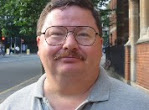As soon as Peter Eisner, and his team, write another book, I want to read it.
I don’t care what the topic is, length, or anything else, I want a copy. I have given up on many books, and too often it was because of poor editing. I can only fight upstream against negligible editing, or sloppy writing for so long. This one flows wonderfully, however.
It’s worth reading all the way through, and it is friendly, easy reading. I found only two sentences worthy of any critical rethinking. One was on p. 202, and the other on p. 305.
In the chapter Losing the War – A Japanese sergeant slammed Foke Kihlstedt, a Swedish friend of Marcial Lichauco, in the face with a stick for failing to remove a cigar from his mouth when he bowed before a sentry. In Sources, the last page of content, refers to the government’s use of Claire Phillips’ diary against her in court. This sentence reads – The U.S. government used the diary against Claire in defending her three-year federal lawsuit. Prosecuting probably would have been a better word.
That’s only two slightly rough spots in thousands of words and sentences. Like seeing only two specks of driftwood while crossing a great river. Eisner, and his noted editor and reading crew, are certainly thorough, and it is appreciated. They easily outdistance themselves from too much of the flawed work published out there nowadays.
My guess is that those two questionable sentences most likely were corrected, or rewritten, but were re-errored in electronic production phases. I have seen that before.
Personally, as with guerrilla leader John P. Boone, my wife is from the Philippines, and I have visited several of the places noted and referred to in the text. I am sure that this made it an easier read for me, and it is possible that Boone was a distant cousin. His appearance, and work as a photographer seemed to increase that chance a little, too.
This book is certainly good enough for assigned reading in most any history or writing class, and some journalism courses.
It was a summer 2020 read.





